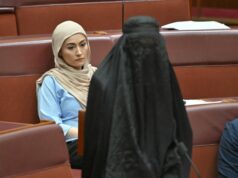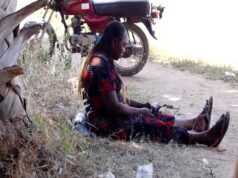
Tanzania has called off next month’s Independence Day celebrations, diverting the money originally set aside for festivities to repair public infrastructure damaged during recent election-related disturbances, Prime Minister Mwigulu Nchemba has announced.
The decision comes ahead of the 9 December national holiday, a date that opposition groups and civil society actors had urged citizens to use as a moment to assemble and protest against what they describe as deadly violence following the country’s disputed presidential poll.
According to BBC reports, the move follows growing pressure from opposition parties who allege that security forces used lethal force to suppress demonstrations after last month’s election, resulting in significant loss of life, allegations that the government has not confirmed through an official death toll.
Opposition leaders claim that hundreds of people were killed during the crackdown on post-election protests. In response to the growing outcry, authorities have established a commission of inquiry to investigate the events. However, the government has so far refrained from releasing any confirmed figures on fatalities, prompting criticism and calls for greater transparency from rights groups and political observers.
President Samia Suluhu Hassan, who secured a landslide victory with 98% of the vote, has faced sharp criticism from her rivals, who labelled the result a “mockery of democracy”. Several of her main challengers were unable to participate in the election. Tundu Lissu, a prominent opposition figure, remains in detention on treason charges, which he denies, while another contender, Luhaga Mpina, was barred from running after his candidacy was rejected on what authorities termed technical grounds.
International and domestic election observers later reported indications that the polling process had been compromised and fell short of accepted democratic standards. Amid the unrest, the government imposed a five-day internet shutdown beginning on election day, 29 October, and warned citizens against sharing images or videos of protests on social media platforms.
In the weeks that followed, graphic images and footage purportedly showing bodies of protesters circulated widely online. International media organisations verified some of the content as genuine. The government, however, criticised such coverage arguing it was designed to damage Tanzania’s global reputation, and insisted that the country remains safe and stable.
Government spokesperson Gerson Msigwa stated on Sunday that the commission of inquiry would provide clarity on the incidents surrounding the protests. Despite this assurance, civil society organisations and advocacy groups have expressed concern about the independence and impartiality of the investigative body.
Authorities charged at least 240 individuals with treason in connection with the protests. In a move aimed at lowering political tension, President Samia later urged prosecutors to exercise leniency. Reports indicate that many of those charged have since been released.
While announcing the cancellation of Independence Day celebrations, Prime Minister Nchemba appealed for restraint and unity, emphasising dialogue as the path forward. “I urge my fellow Tanzanians to come together and discuss the issues affecting us. Let us not return to what we went through, because the consequences are irreparable,” he said.
President Samia Suluhu Hassan assumed office in 2021 following the death of former President John Magufuli, becoming Tanzania’s first female head of state. Her early tenure was marked by praise for easing political restrictions and opening up civic space. However, critics argue that the environment has since tightened, pointing to recent arrests, restrictions on opposition activity, and limitations on freedom of expression as signs of a shrinking democratic space.
(With Agency Inputs)




